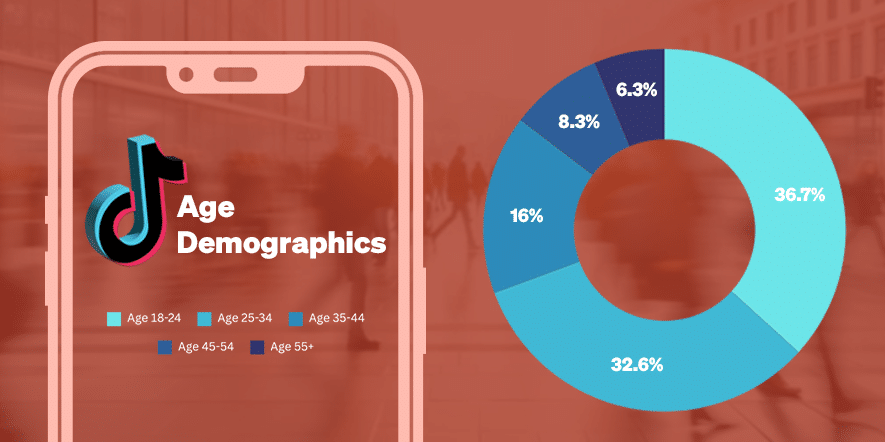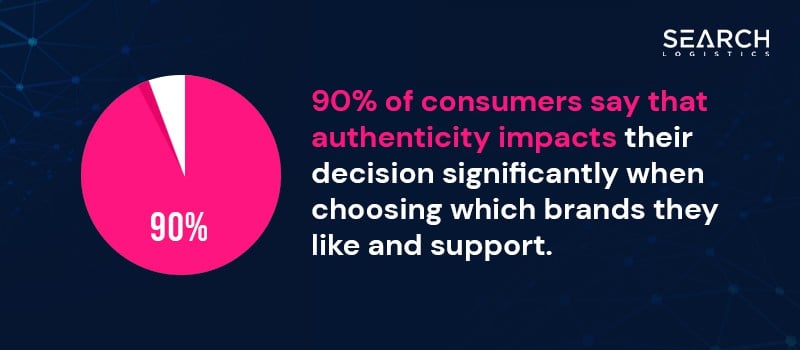Engaging Gen Z: Innovative Brand Strategies for Youth-Centric Platforms
Meta Description: Discover effective brand strategies to engage Gen Z on youth-centric platforms, featuring insights on their preferences, innovative campaigns, and essential social media strategies.
Understanding how to engage Gen Z is crucial for brands looking to connect with this dynamic demographic. As one of the most influential consumer groups today, Gen Z exhibits unique preferences and characteristics that set them apart from earlier generations. This blog post is designed to provide valuable insights and innovative strategies for marketers, entrepreneurs, and brands aiming to resonate with young consumers.
Meet the Author: Aleksander Nowak, SEO Specialist with over 5 years of experience in helping brands optimize their marketing strategies. Alexanders' expertise lies in understanding consumer behavior, particularly that of Gen Z, making him a valuable resource for insights in today's rapidly changing marketplace.
1. Understanding Gen Z: Demographic Insights
Statistics on Population and Spending Power
Gen Z, comprising individuals born between 1997 and 2012, currently represents around 20% of the U.S. population. This translates to approximately 50 million Gen Z individuals within the country. Furthermore, this generation boasts an estimated annual spending power of $143 billion (Business Insider), making them a potent force in the marketplace.
Trends Influencing Gen Z's Consumer Behavior
Gen Z's consumption habits starkly differ from those of earlier generations. Sustainability, social justice, and brand authenticity are at the forefront of their preferences. A heightened awareness of global issues and mental health leads them to support brands that align with strong ethical values.
2. Preferred Platforms: Where to Find Gen Z
Platform Usage Data
Understanding which platforms Gen Z frequents is key to implementing successful marketing strategies. Recent statistics reveal that 60% of TikTok users fall within the 16 to 24 age group (Statista), illustrating that platforms like TikTok, Instagram, Snapchat, and YouTube are vital for engagement.

Content Type Preferences
Gen Z gravitates towards short videos, memes, and user-generated content (UGC). The rise of ephemeral content on platforms like Snapchat and Instagram also highlights the need for brands to create time-sensitive, relatable content that resonates with this audience.
3. Engagement Strategies: Successful Case Studies
Examples of Brands Effectively Engaging Gen Z
Brands can learn from innovative campaigns that successfully captured the Gen Z audience:
- Nike: The "You Can’t Stop Us" campaign resonated strongly through themes of inclusivity and resilience, appealing to Gen Z's values during the pandemic.
- Dunkin': Partnering with TikTok influencer Charli D’Amelio showcases how influencer marketing can directly engage and attract Gen Z consumers, generating significant buzz and brand loyalty.
4. Brand Values and Authenticity: Meeting Gen Z Expectations
Understanding Gen Z's Expectations
Research indicates that 83% of Gen Z prefers to engage with brands that advocate for social causes (FleishmanHillard). Brands must prioritize authenticity in their messaging and actions to earn the trust and respect of this generation.
Best Practices for Alignment
To align with Gen Z's values, brands should:
- Participate in or initiate social movements.
- Share transparent business practices.
- Showcase authentic stories that reflect their commitment to making a positive impact.
5. User-Generated Content (UGC): Harnessing the Power of Community
Impact of UGC on Purchase Decisions
User-generated content is a powerful tool; 79% of Gen Z report that UGC significantly influences their purchasing decisions (Animoto). Brands that effectively curate and showcase UGC foster a sense of community and belonging among their audience.

Encouraging Engagement
Brands can encourage UGC by:
- Hosting contests or challenges that invite users to create content.
- Featuring customer stories and testimonials on their websites and social media platforms.
6. Creative Campaigns: Innovative Outreach Tactics
Breaking the Mold with Innovation
Engaging Gen Z requires brands to think outside the box. Tactics such as:
- Augmented Reality (AR) and Virtual Reality (VR) experiences can create immersive marketing initiatives.
- Gamified marketing strategies, including interactive apps and challenges, captivate Gen Z consumers.

Successful Examples of Creative Campaigns
An impressive example is Burger King's "Whopper Detour," a campaign utilizing location-based marketing that generated significant engagement among younger consumers by leveraging their mobile devices.
7. Data on Shopping Behaviors: Navigating E-commerce
E-commerce Preferences
A study by McKinsey reveals that 70% of Gen Z prefer online shopping over physical stores, marking a significant shift in purchasing behavior. This statistic highlights the necessity for brands to invest in strengthening their online presence.
Peer Reviews and Recommendations
Gen Z heavily relies on peer reviews and recommendations. Brands can utilize platforms like Yelp, Trustpilot, and social media to enhance authenticity and build trust alongside their messaging.
8. Trends Shaping the Future: Staying Ahead of the Curve
Forecasting Future Changes
To remain relevant, brands must anticipate upcoming trends. Experts predict that mental health awareness in marketing will increase, particularly among Gen Z consumers, who prioritize their well-being.
Strategies for Adaptation
Leveraging emerging technologies, such as AI for personalized marketing, can help brands effectively engage Gen Z, providing tailored experiences that resonate with their individual needs.
9. Engaging Content Frameworks: Connecting with Gen Z
Effective Content Models
Brands should employ frameworks such as the "Tell-Show-Ask" model, which encourages storytelling, showcases authenticity, and invites consumer engagement through actions.
Interactive Formats to Consider
Utilizing interactive techniques—such as polls, quizzes, and video challenges—can actively involve Gen Z and foster loyalty while enhancing brand engagement.
10. Resource Recommendations: Further Learning
To support ongoing education, consider exploring comprehensive studies and insights from credible sources such as:
- The Deloitte Global Millennial Survey
- Reports from the Pew Research Center
These resources offer valuable information on consumer behavior trends and marketing strategies pertinent to Gen Z.
Conclusion
Engaging Gen Z is not just about meeting their demands; it's about understanding their values, preferences, and behaviors. From innovative content strategies to embracing authenticity and incorporating user-generated content, brands have the opportunity to create meaningful connections with one of the most influential consumer demographics today. By adapting to these trends and continuously seeking knowledge, marketers and brands can develop effective strategies that mirror the complexity of this generation.
Interested in exploring more about crafting effective marketing strategies for Gen Z or learning about emerging trends in the digital landscape? Subscribe to our newsletter for insights that keep you ahead of the curve and engaged with your audience!
